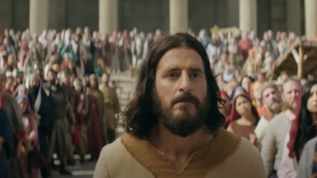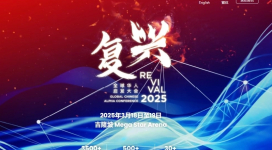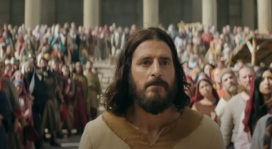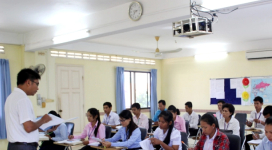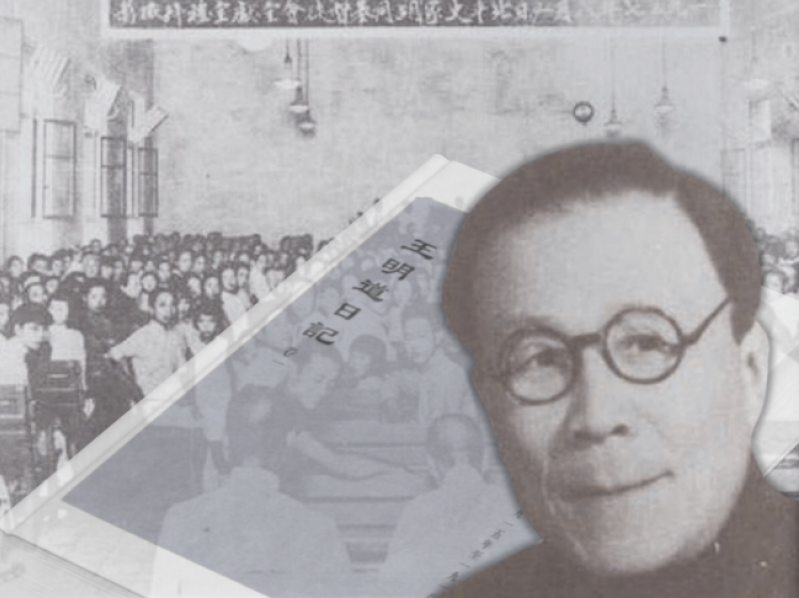
On December 9, the China Graduate School of Theology (中国神学研究院) hosted a public lecture titled “A Courageous Witness in the Times—Launch of Wang Mingdao (王明道)’s Diary.” The lecture, themed “Faith Patterns in Beijing’s Christian Churches Through the Lens of Wang Mingdao’s Diary,” featured Dr. Ni Buxiao (倪步晓), Associate Director and Assistant Professor at the Christian Faith and Chinese Culture Research Center of Alliance Bible Seminary (建道神学院), as the keynote speaker. Dr. Chen Xiaoqi (陈晓琪), Assistant Professor of Theology at the institution, moderated the event.
Dr. Ni noted that previous knowledge of Wang Mingdao primarily stemmed from his autobiography and the memoirs of his wife, Jingwen (景文). This lecture, however, drew from Wang Mingdao’s original diary manuscripts to present a more authentic and multidimensional portrait. The precious diaries, spanning four decades (1915–1955), faithfully document Wang’s spiritual journey and bore witness to God’s work in modern Chinese history.
Despite the tumultuous times, these manuscripts are remarkably preserved. Since Wang did not intend to publish his entries, the diaries retain extensive unpolished personal reflections, spiritual insights, and private content, making them an invaluable primary source for academic research.
The lecture provided a detailed overview of Wang Mingdao’s life: how the loss of his father in childhood shaped his character; his spiritual rebirth during his youth under the influence of Andrew Murray and early missionaries of the Apostolic Faith Mission; his founding of the "Spiritual Food Quarterly" magazine; and his establishment and pastoring of the Christian Tabernacle in Beijing, evolving from a home Bible study group to its official location at No. 42 Shijiahutong. After the church’s construction, Wang reduced his external preaching engagements to focus on shepherding his congregation. Ultimately, he was arrested and imprisoned in 1955. Dr. Ni contextualized Wang’s unwavering faith, struggles, and compromises within the broader currents of his era.
Dr. Ni characterized Wang Mingdao’s theological approach as “restorationism.” Wang advocated for a return to the primitive church model. Theologically, he upheld the purity of early church doctrines and approached traditional church doctrines with caution. He adhered strictly to Baptist practices and offered unique, Scripture-based perspectives on core doctrines, including the Trinity, favoring biblical expressions and inclining toward a unitarian understanding.
In church administration, Wang emphasized independence, self-management, and self-support, which subjected him to greater economic and political pressures. He believed that consistent preaching by the same pastor was essential for church revival, rarely inviting guest speakers. Even renowned preachers like Yang Shaotang (杨绍唐) and Chen Chonggui (陈崇桂) were not granted opportunities to preach at his church. Financially, he set up two offering boxes in the church—one for operational expenses and another for ministerial salaries. Wang himself contributed offerings, meticulously recording them in his diaries. Additionally, out of concern that choir activities might lead to “performance” or courtship distractions, Wang dissolved the choir, retaining only a lead singer.
The lecture also clarified misconceptions about Wang. Although he emphasized church independence, he maintained connections with Western mission societies. His diaries document close interactions with fundamentalist Western missionaries and his highly praised preaching trips to places such as Lanzhou and Linxia for the Christian and Missionary Alliance. Furthermore, Wang did not entirely avoid social service; his diaries record church efforts in poverty relief and donations. However, he prioritized the moral improvement of Christians, viewing it as a contribution to societal stability.
Regarding Wang Mingdao’s relationship with politics, Dr. Ni noted that Wang was not unpatriotic. He chose to remain in mainland China and initially cooperated with the government’s church registration efforts, harboring hopes for the new government and social order. However, he refused to join politically aligned organizations like the “North China Christian United Promotion Association” and the “Three-Self Patriotic Movement,” insisting on faith’s independence and rejecting political interference in the church. He believed the church should “remain unchanged amidst change” and focus on its faith mission. This stance ultimately led to his arrest in 1955, with his diaries reflecting his fears and anxieties on the eve of his detention.
Dr. Ni Buxiao: A Microcosm of Contemporary Chinese Christianity’s Complexities; Dr. Song Jun: A Genuine Record of Struggles and Choices in the Torrent of History
Dr. Ni argued that Wang Mingdao’s diaries are not only records of his personal faith journey but also a microcosm of the complex circumstances faced by Chinese Christianity of that era. His steadfast faith and uncompromising spirit continue to inspire believers today. Dr. Ni also previewed the forthcoming publications "The Brilliance of Wang Mingdao’s Faith" and "Wang Mingdao’s Final Struggles," encouraging attendees to delve into Wang’s diaries to understand this spiritual giant’s inner world.
During the response session, Dr. Song Jun (宋军), Director of the Chinese Culture Research Center at the China Graduate School of Theology, highlighted the value of Wang Mingdao’s diaries in authentically documenting an individual’s struggles and choices amidst historical currents. Wang was not a flawless hero but an ordinary person filled with inner conflicts and fears. This authenticity makes his diaries an invaluable resource for future research. Dr. Song emphasized that Wang’s story reminds us that anyone can become a “courageous witness of the times” by steadfastly adhering to their faith in adversity. Understanding historical figures requires examining their inner worlds, contextualizing their actions within their era, and appreciating their personal experiences.
The Profound Impact of Faithful Witness on China’s House Churches
During the Q&A session, an audience member asked about Wang Mingdao’s relevance to contemporary Chinese house churches. Dr. Ni responded that Wang’s unwavering faith and uncompromising spirit profoundly influenced house churches in China, serving as a vital spiritual resource. He noted that the political climate of the 1950s shaped Wang’s image as a spiritual giant, reflecting many believers’ perseverance in faith and longing for moral integrity.
Dr. Song added that Wang’s legacy offers an “alternative choice” similar to the German Confessing Church’s resistance during the Nazi era—living out a different model of faith under oppressive circumstances, which remains an essential inspiration for today’s church.
Finally, Pastor Chen Peide (陈培德) from Tehwei Cultural Books (德慧文化图书)shared the story behind the diary’s publication. He recounted early discussions with Dr. Song Jun and the decision to reproduce the diaries in their original scanned form. The publication process took four years and involved extensive effort, culminating in the faithful presentation of over 4,000 pages of diaries. Pastor Chen expressed gratitude to all contributors and emphasized that the publication allows readers to engage directly with Wang Mingdao’s writings, offering deeper insights into this significant historical figure.



